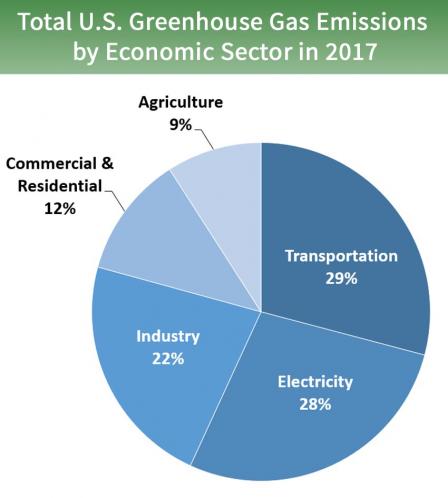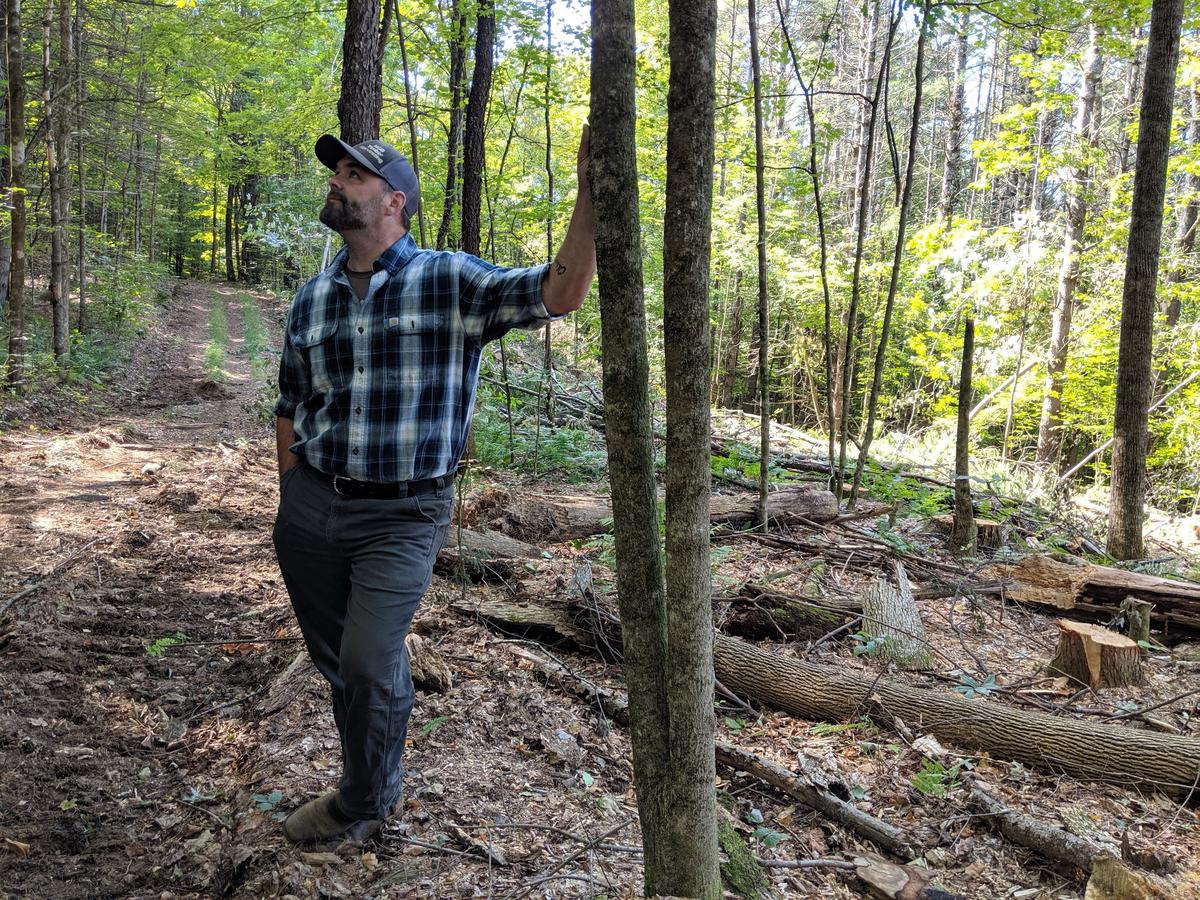Episode 175: Solutions And Challenges To Cutting Carbon Emissions

(Paul Brennan/Public Domain Pictures)
This week on NEXT, we talk about greenhouse gas emissions and the two sectors that are emitting the most: energy and transportation. Scientists and policy-makers agree these sectors need to transform in order to slow the pace of global warming; we look at how they’re doing. Plus, 400 years after the first slaves were brought to the United States, a jazz composer maps the history of African-Americans music.
Northeast pushes to curb transportation emissions

(U.S. Environmental Protection Agency)
The transportation sector is the largest emitter of greenhouse gases in the United States. The Environmental Protection Agency says nearly a third of all emissions come from transportation –especially light-duty cars and trucks, and emissions aren’t going down. The EPA says transportation emissions have actually grown 22 percent between 1990 and 2017.
Now, a group of states in the Northeast are forming a plan to reduce transportation emissions; it’s called the Transportation and Climate Initiative. Some say the idea is a regional gas tax. Others call it cap and trade for cars. WBUR in Boston wrote an explainer on TCI.
This month, the Northeast states involved in TCI will put out a draft Memorandum of Understanding. The MOU can serve as a template bill that states can choose to adopt during their legislative sessions next year. The MOU is expected to be finalized in the spring. Massachusetts, Connecticut and Rhode Island have committed to implementing the TCI in their states. Vermont, New Hampshire and Maine have been part of the planning process but have not yet committed.
As Energy Sector Cuts Emissions, Some Alternatives To Fossil Fuels Questioned

Brooks Weathers of Durgin & Crowell Lumber Co. inspects a tract of forestland. (Annie Roapeik/NHPR)
The energy sector –how your heat and electricity are produced– has the second highest greenhouse gas emissions. But, unlike transportation, energy has been much better at trimming its carbon emissions. That’s partly because it’s heavily regulated and centralized. Many states, including in New England, are aggressively trying to add energy that emits zero carbon to their fuel mix.
Natural gas has become more popular, and it emits less carbon than coal and oil, and zero-emission renewables are also on the rise. Policy changes have helped too; the Regional Greenhouse Gas Initiative makes power plants buy permission to emit carbon over certain limits and reinvest the money in other energy solutions.
Despite energy’s success at cutting down carbon emissions, some potential solutions are more controversial than others. One idea that’s often debated, especially in northern New England, is biomass. Biomass generates energy by burning wood, usually scraps left over from high-value timber harvests.
New Hampshire has long sold wood scraps to be burned for energy, but now, after subsidy plans failed, most of the state’s half dozen or so small biomass power plants have gone idle or scaled down operations. Dartmouth College had proposed transitioning to biomass, but has reconsidered after months of local pressure. And as biomass plants shut down, that means the forest products sector has fewer in-state markets where it can sell wood scraps. Hear how the logging industry is dealing with this and pursuing alternative markets.
‘African-American Musical Portrait’ Marks 400 Years Since U.S. Slavery’s Inception

(Courtesy of Avery Sharpe)
Historians still debate when it was that groups of Africans were first taken by Europeans and brought against their will to the Americas. But many say it happened in 1619, making this year the 400th anniversary of the start of slavery in the U.S. Bass player and jazz composer Avery Sharpe has taken this significant number and written what he calls an “African American musical portrait.” Sharpe lives in western Massachusetts and has played over the decades with McCoy Tyner and Wynton Marsalis, among others.
Also on the show this week:
About NEXT
NEXT is produced at Connecticut Public Radio
Host: Annie Ropeik
Producer: Morgan Springer
Senior Director: Catie Talarski
Contributors to this episode: Heather Brandon, Jill Kaufman, Zeninjor Enwemeka, John Dillon, Daniela Allee and Annie Ropeik.
Music: Todd Merrell, “New England” by Goodnight Blue Moon, “Fresh Like a New Dollar” by West End Blend and “Same Town” by Chris Ross and the North.
New to NEXT? You can find every episode or one you missed within our archives.
We want your feedback! Send critiques, suggestions, questions, and ideas to next@ctpublic.org. Help us spread the word! If you like what you hear, rate and review us on iTunes.
